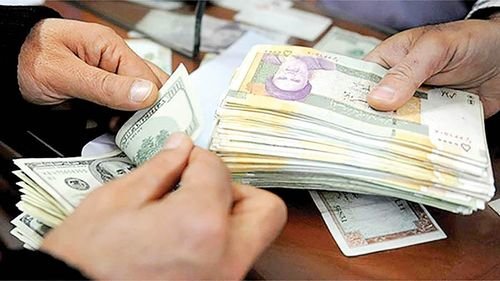Market looking forward to CBI foreign currency package

The Central Bank of Iran (CBI) launched a secondary currency market on July 3, 2018, in a bid to renovate its foreign currency system, reign the currency rates, reinforce exports, improve cooperation with foreign currency exchange shops, and to ease a dollar shortage ahead of the new turn of U.S. sanctions.
The market, which was established in the hope that the price of the dollar would be set according to market supply and demand, only provides services to private sector businessmen and those from small businesses, lets exporters of non-oil goods to sell their foreign currency earnings to importers of consumer products at sabtaresh.com (a website running under Iran Trade Promotion Organization).
Now, after almost a month from the market inauguration, some experts lament that it cannot meet the country’s need for foreign currency, is not able to manage domestic foreign currency market, and worst of all is influencing other markets.
As the Chairman of Majlis (the Iranian parliament) Economic Committee Mohammadreza Pourebrahimi says, “The operating market is not the one which was predicted to be.”
“To make the government able in managing the forex market, the expected secondary market was supposed to attract Iran’s total earned non-oil revenues, which would be equal to $45 billion of foreign exchange reserves,” he said, “In addition, from the total of $50 billion of the country’s imports, $20 billion belongs to imports of basic goods which receive foreign currency at official rate at the primary market and the rest $30 billion was expected to be traded at the secondary market.”
“However, according to the reports, since the establishment of the secondary market the total value of trades stands at $300 million, despite the current $30-billion-demand,” he criticized.
“Being well-managed, the forex market can positively influence other markets such as gold, auto, home appliances, and etc.,” Pourebrahimi underlined.
Expressing the same point of view, head of monetary and banking committee of the parliament Mohammad-Hossein Hosseinzadeh Bahreini called on CBI to play a more active role in domestic foreign currency market, suggesting that the government should let the secondary market manage foreign currency as well as gold market or transfer the management knowledge to CBI to make the central bank capable of reigning the rampant market.
“Under the current circumstances, the government should facilitate importing of goods for the importers via providing them with foreign currency at official rate at the secondary market,” he added.
The turbulent atmosphere and unpredictable fluctuations of the foreign currency market during the recent months besides the negative consequences of the government’s policy in enacting a single exchange rate for dollar, eventually made the government to get prepared to reappraise its foreign currency strategies.
According to the latest announcements made by the governmental officials and the parliament members, CBI is assessing and reviewing its foreign currency policies and will release its new policies in form of a package, details of which are not revealed yet.
But based on experts’ assumptions, CBI seeks implementation of three main policies in this package to make the foreign currency market stable and avoid rent seeking at it.
As assumed, the package relies on transferring foreign currency trades of exporters into the secondary market, and requires petrochemical companies besides those from steel and mining sectors, which contribute to 80 percent of the country’s non-oil exports, to sell their income to importers at an accorded forex rate at the secondary market.
CBI is said to return foreign exchange bureaus back to Iran’s foreign currency cycle and exporters and importers will make their agreements about the exchanges and rates at these offices.
According to some experts, to stop rent seeking, the central bank is also determined to reduce the foreign travel currency up to 50 percent from its present amount and would grant it to only qualified applicants not the middlemen who intentionally make the rates skyrocket.
The CBI foreign currency package was expected to be unveiled during the recent days but the expectation has not been met yet, while the market and its players immensely await it.
HJ/MA
Leave a Comment